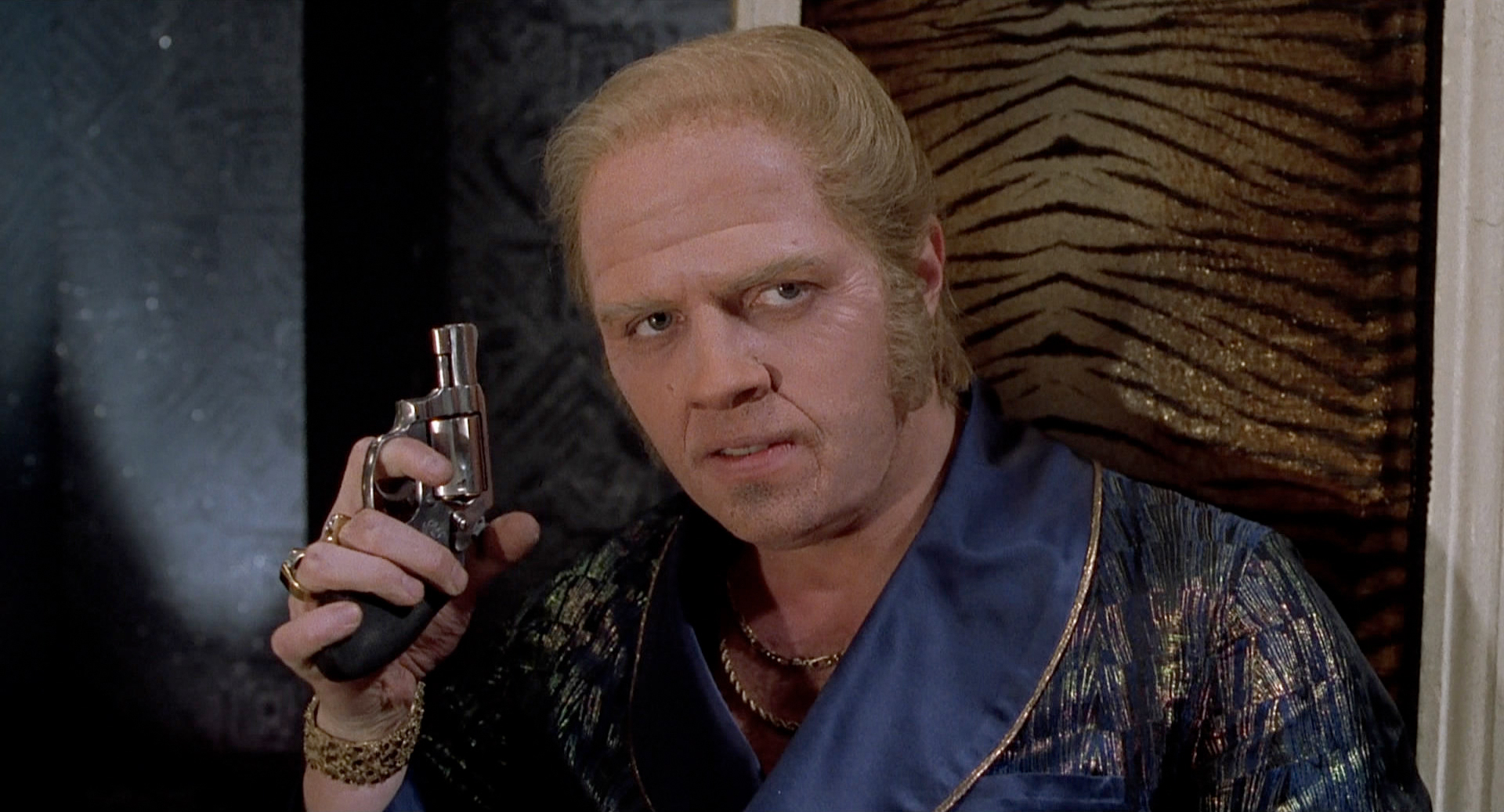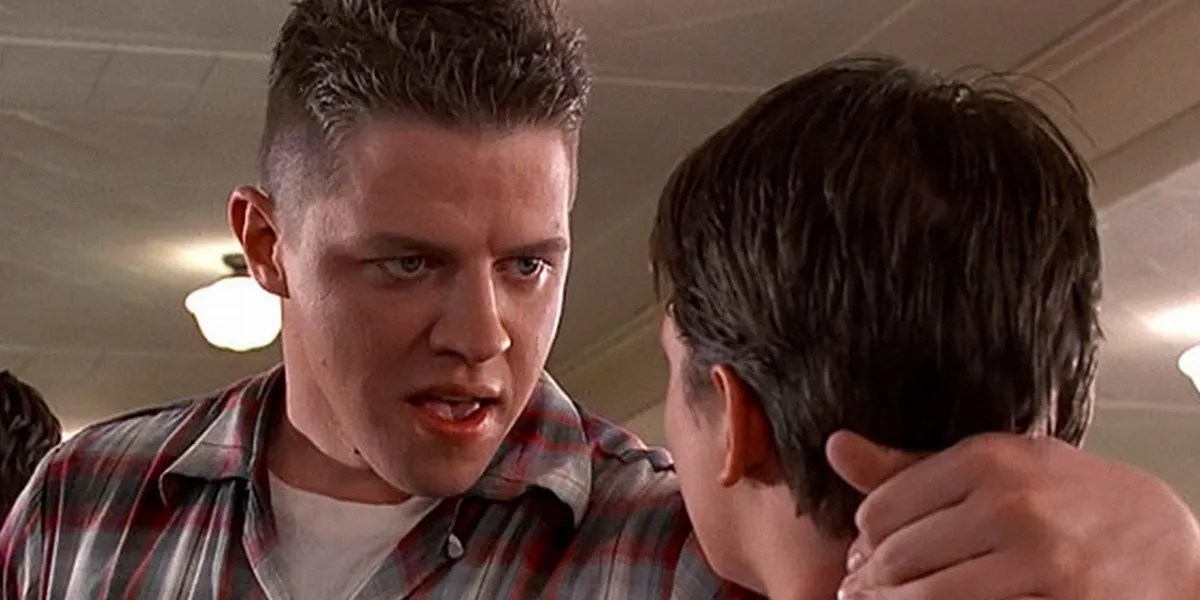Biff Tannen is one of the most iconic villains to ever grace the silver screen. As the notorious bully from the beloved "Back to the Future" trilogy, Biff has left a lasting impression on audiences worldwide. Played by the talented actor Thomas F. Wilson, Biff's character serves as a primary antagonist throughout the series, creating countless obstacles for the protagonists Marty McFly and Doc Brown. This character's larger-than-life personality and penchant for causing trouble have made him a memorable figure in pop culture. Whether it's his classic catchphrases or his ability to adapt to various timelines, Biff Tannen's presence is undeniably significant in the realm of science fiction cinema.
Set against the backdrop of Hill Valley, California, the "Back to the Future" films explore the concept of time travel, with Biff Tannen often at the center of the chaos. From his tyrannical reign in the alternate 1985 to his role as a misunderstood bully in 1955, Biff's character showcases a range of emotions and motivations that keep audiences captivated. While his actions are typically selfish and destructive, there are moments where viewers catch glimpses of vulnerability, adding depth to his character. Biff's journey through various timelines not only highlights the impact of his choices but also serves as a cautionary tale about the consequences of unchecked ambition and greed.
Beyond his on-screen antics, Biff Tannen has become a cultural icon, inspiring countless parodies, merchandise, and references in films and TV shows. His influence extends beyond the "Back to the Future" franchise, as he represents a quintessential archetype of the bully in storytelling. Despite his villainous nature, Biff's character has managed to endear himself to fans, solidifying his place in cinematic history. As we delve deeper into the world of Biff Tannen, we will explore his biography, delve into his character's motivations, and examine the lasting impact he has had on audiences and pop culture alike.
Who is Biff Tannen?
Biff Tannen is a fictional character from the "Back to the Future" film series, which was directed by Robert Zemeckis and written by Zemeckis and Bob Gale. He serves as the main antagonist throughout the trilogy, consistently creating obstacles for the protagonists, Marty McFly and Doc Brown. Biff is portrayed by actor Thomas F. Wilson, who masterfully brings the character to life with his comedic timing and larger-than-life presence. Biff's character is known for his aggressive demeanor, lack of empathy, and tendency to bully those around him.
Biff Tannen's Biography
| Attribute | Details |
|---|---|
| Full Name | Biff Howard Tannen |
| Portrayed by | Thomas F. Wilson |
| First Appearance | "Back to the Future" (1985) |
| Occupation | Varies (bully, car dealership owner, casino owner) |
| Affiliation | Antagonist |
| Nationality | American |
What Drives Biff Tannen's Actions?
Biff Tannen's actions are primarily driven by his desire for power and control. Throughout the series, Biff consistently seeks ways to elevate his status and gain the upper hand over others. His bullying behavior is a manifestation of his need to assert dominance, often resorting to intimidation and manipulation to achieve his goals. In the alternate 1985 timeline, Biff's ambitions are fully realized when he becomes a wealthy and powerful casino owner, showcasing the extent of his greed and willingness to exploit others for personal gain.
How Does Biff Tannen Evolve Throughout the Series?
While Biff Tannen remains a consistent antagonist, his character undergoes several transformations throughout the "Back to the Future" trilogy. In 1955, he is portrayed as a high school bully who terrorizes his classmates and lacks any sense of morality. However, as the series progresses, Biff's character is explored further, revealing moments of vulnerability and regret. In the alternate 1985 timeline, Biff achieves great success but ultimately becomes a bitter and lonely figure, highlighting the consequences of his unchecked ambition. By the end of the series, Biff's character arc comes full circle, serving as a cautionary tale about the dangers of power and greed.
What Makes Biff Tannen a Memorable Villain?
Biff Tannen's status as a memorable villain can be attributed to several factors. His larger-than-life personality, combined with Thomas F. Wilson's comedic portrayal, makes Biff a standout character in the "Back to the Future" series. Additionally, Biff's ability to adapt to various timelines and situations keeps audiences engaged and invested in his character's journey. His iconic catchphrases, such as "Make like a tree and get out of here," have become ingrained in pop culture, further cementing his status as a beloved antagonist. Biff's character serves as a timeless representation of the classic bully archetype, resonating with audiences across generations.
What Impact Has Biff Tannen Had on Pop Culture?
Biff Tannen's impact on pop culture extends far beyond the "Back to the Future" franchise. His character has become a cultural icon, inspiring parodies, merchandise, and references in various forms of media. Biff's catchphrases and mannerisms have been emulated and referenced in films, TV shows, and even video games, showcasing his lasting influence on popular culture. Additionally, Biff's character serves as a cautionary tale about the dangers of unchecked ambition and the consequences of one's actions, resonating with audiences and reinforcing important life lessons.
The Legacy of Biff Tannen
The legacy of Biff Tannen is one of both humor and caution. As a character, Biff has provided audiences with countless laughs and memorable moments, thanks to Thomas F. Wilson's masterful portrayal. However, Biff's character also serves as a reminder of the dangers of unchecked ambition and the consequences of one's actions. Through his various iterations, Biff's character highlights the importance of empathy, kindness, and humility, serving as a timeless representation of the classic bully archetype. As we continue to revisit the "Back to the Future" series, Biff Tannen's legacy remains as relevant and impactful as ever.
.webp/revision/latest?cb=20220320005623)



